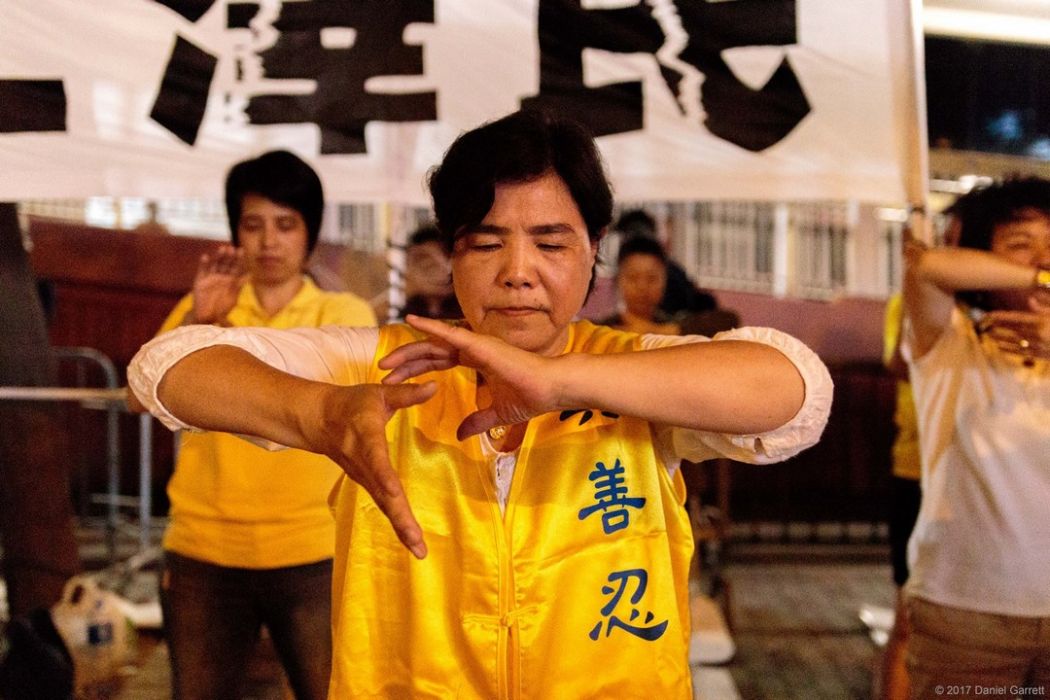Pro-Beijing lawmakers on Wednesday called on the government to ban the Falun Gong in Hong Kong, and investigate the group’s funding. In response, the Secretary for Security said the police had taken 3,545 actions against the group in the last eight years.
Lawmaker Elizabeth Quat accused the spiritual movement of “spreading subversive opinions” through its street booths and public gatherings.

Quat also cited an online stream of the July 1 knife attack against a police officer which was shot by a platform linked to the Falun Gong. She claimed the group was disseminating “anti-government ideology.”
Falun Gong members frequently set up street booths in Hong Kong’s busiest districts in protest of alleged rights abuses against the group in mainland China. The group has shown strong support for the city’s 2019 pro-democracy protests.
Lawmaker Wong Kwok-kin said the street booths and the dissemination of its newspaper the Epoch Times “endangered the public,” asking whether law enforcement will consider freezing the group’s assets under its expanded powers under the security law.

Newly-appointed Secretary for Security Chris Tang, a former police chief, declined to comment on whether the group was in violation of the Beijing-imposed security law, but did not rule out future action against them.
“Whether the Falun Gong organisation is in breach of the national security law… the law enforcement agencies will definitely look closely into the matter,” Tang said. “Legal proceedings may be taken against the organisation in the future so I will not comment publicly on an individual organisation.”
Tang said the group may also be in breach of other Hong Kong laws, including laws prohibiting money-laundering and the Societies Ordinance.

He added that law enforcement would monitor any organisation suspected of endangering national security and any law enforcement action will be “based on evidence” and the “acts of institutions, nothing to do with their political stance.”
Falun Gong is a spiritual practice combining exercises, meditation and moral philosophy. In 1999, it was declared an “evil cult” by mainland Chinese authorities after Beijing became wary of its popularity and capacity to organise members. Practitioners have accused the government of torture and organ harvesting.
The Hong Kong police launched 3,545 operations between 2013 and May 2021 to remove Falun Gong members and paraphernalia from the city’s streets, Tang said.
‘Hefty price’
Tang also urged members of the public to distance themselves from organisations that may endanger the city’s national security, saying those who failed to do will face serious consequences.

“Hong Kong citizens must disassociate themselves from organisations, institutions and persons which endanger national security, including those intending to commit subversion, and refrain from siding with them or providing pecuniary support, or else they may face a hefty price,” he warned.
“Any acts that may endanger national security, and any organisations engaging in such acts will face the full force of the law, including vigorous investigation and gathering of evidence and, if need be, enforcement action will be taken,” the secretary added.
In April, the Epoch Times said it would “never back down” after a gang of sledgehammer-wielding men damaged its printing presses. A month earlier, one of its reporters was injured in a drive-by assault.
Support HKFP | Policies & Ethics | Error/typo? | Contact Us | Newsletter | Transparency & Annual Report | Apps
Help safeguard press freedom & keep HKFP free for all readers by supporting our team
























